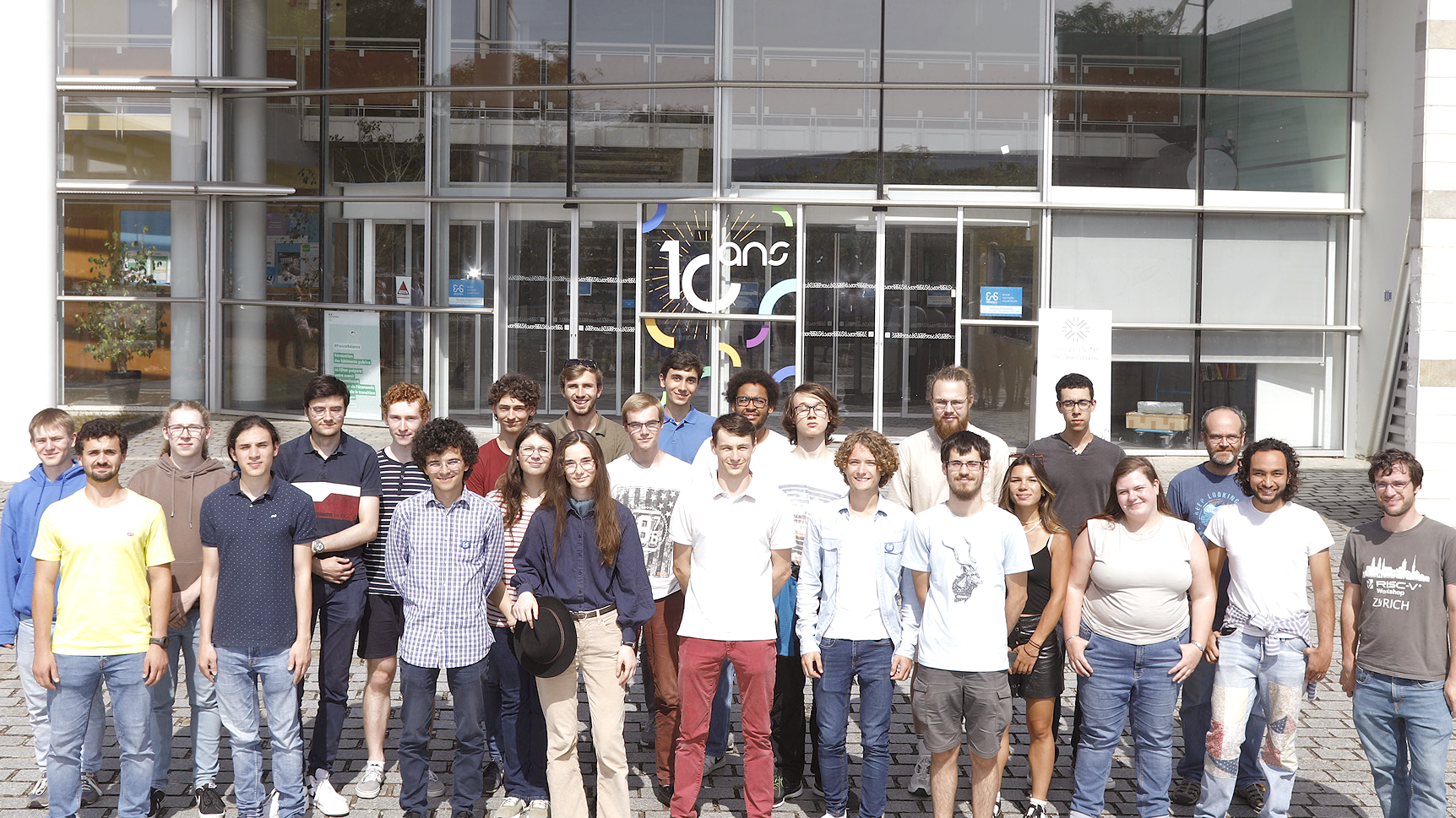Addressing the Challenges of I/O Variability in Post-Petascale HPC Simulations
on the December 9, 2014
14h00
PhD. defense of Matthieu Dorier (ENS Rennes - IRISA / KerData).
Computer Science
Abstract:
Million-core supercomputers have become a reality in 2012 with LLNL's Sequoia supercomputer. Following Moore's law, Exascale machines (capable of 10^18 floating point operations per second) are expected by 2018. Such an immense computational power is used in many research areas, including earth sciences, biology, climate, or cosmology, where large-scale simulations are conducted to understand physical phenomena better. But larger simulations on larger machines lead to the production of larger amounts of data that need to be efficiently stored and processed in order to retrieve scientific insights. In this talk, we present some of the new approaches to data management that we proposed during our PhD. We first introduce the Damaris approach, which leverages the multicore nature of recent machines to offload data-management tasks into dedicated cores. We study in particular how Damaris can be used to hide the variability in I/O (Input/Output) performance, and improve the scalability as well as the I/O throughput of HPC applications. We then present how Damaris was extended to provide in situ visualization capabilities to simulations in a way that does not impact their performance. Finally we study the effect of multi-application I/O contention on the performance of parallel storage systems.
- Thema
- Research - Commercialisation
Date of update February 17, 2015
Jury
- Jean Roman / rapporteur
Professeur, Institut Polytechnique de Bordeaux, France - Toni Cortes / rapporteur
Associate Professor, Universitat Politècnica de Catalunya, Spain - Franck Cappello / examinateur
Senior Computer Scientist, Argonne National Laboratory, IL, USA - Jean-François Méhaut / examinateur
Professeur, Université de Grenoble 1, France - Gabriel Antoniu / directeur de thèse
Directeur de recherche, Inria Rennes - Bretagne Atlantique, France - Luc Bougé / directeur de thèse
Professeur, ENS Rennes, France






